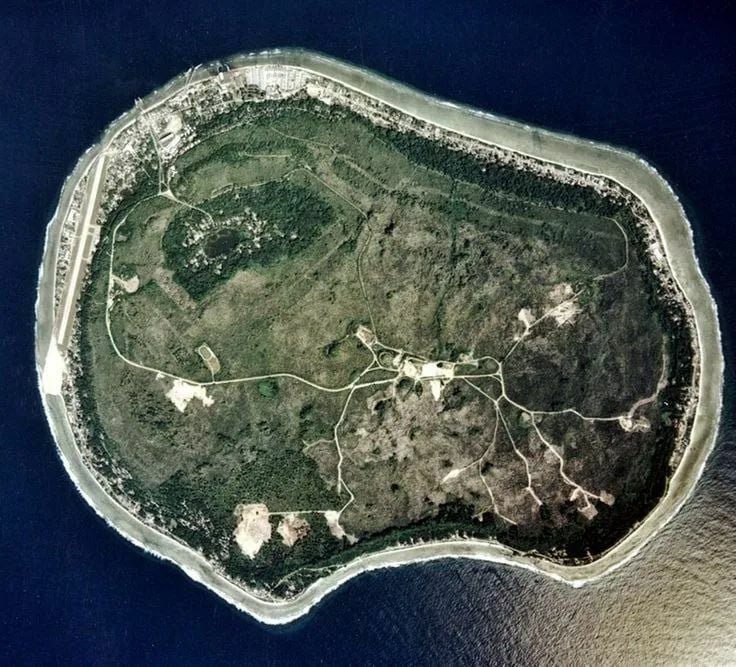‘Big Joke’ moves on Chinese passport forgers
Nauru consulate a front for Chinese passport forgers

The Deputy Commissioner of the Royal Thai Police, Surachate “Big Joke” Hakparn, swooped on Chinese passport forgers hiding at the Bangkok residence of a Nauruan diplomat.
Onassis Dame, consul-general to Thailand from the tiny Pacific island nation of Nauru, and his family no longer live there, according to Radio Free Asia. Instead, the residence, which investigators raided on December 22, was used as a base for forging passports by foreigners including two Chinese nationals wanted by Beijing.
Dame’s whereabouts as well as his and the Nauru consulate’s role, if any, in the passport mill is unclear. According to the Thai police, the illicit operation forged Chinese and Nauru passports.
Dame’s term as consul-general had expired in November, according to Big Joke.
An employee at Nauru’s consulate in Thailand said on Tuesday that Dame had been recalled – a term that can cover various scenarios including the scheduled end of a posting, a diplomat’s poor behaviour, or a government wanting to convey its displeasure with the host country.
On Wednesday, the consulate employee said that consulate officials were busy with the situation involving Dame and the rented residence. An official at Nauru’s Government Information Office said they had no information about the case.
Nauru, northeast of Australia, is the world’s third smallest state by area after the Vatican, and Monaco. It is one of only 14 countries that recognizes Taiwan instead of China. The 21-square-kilometre atoll is pockmarked by a phosphate mining industry that for several decades made Nauru among the world’s richest nations.
The most accessible phosphate is now exhausted and Nauru, home to about 10,000 people, is reliant on aid from Australia, Taiwan, and the Asian Development Bank. In 2008, Nauru recognized the breakaway Georgian republics of Abkhazia, and South Ossetia to also secure Russian aid.
In Thailand, the passport forgery investigation is the latest in a series of busts of crime rings and unregistered businesses involving Chinese nationals.
The case also shone a spotlight on official corruption as Department of Special Investigation (DSI) officers and other officials who carried out the December 22 raid were arrested in January for taking a bribe from the Chinese nationals and allowing them to escape.
At least 15 officials have been charged with corruption in connection with the case, according to news reports.
On Wednesday, Thai Justice Minister Somsak Thepsuthin signed an order to transfer DSI chief Traiyarit Temahiwong over the scandal, Bangkok Post reported.
The raided compound, in central Bangkok, is home to luxury homes and high-end apartment buildings with well-tended grounds, swimming pools, and tennis courts connected by a private road.
Property rental sites show a three-bedroom apartment can be had for about 100,000 baht (US$3,00) a month. An eight-bedroom three-story house in the compound is listed for 430,000 baht (US$13,000) a month.
The constant comings and goings of unregistered vehicles and people, day and night, at the residence rented by Nauru caused concern for neighbours and the compound’s security guards and eventually led to the December 22 raid.
A December 13 legal letter to Dame on behalf of the company that had leased the property said the lease agreement with the Nauru consulate had been violated. It said the property had never been used as the private residence of Dame, his three family members or two staff as intended by the agreement signed on September 2 last year. The letter read…
“There has been an unconventionally high amount of traffic of unregistered vehicles entering and leaving the premises including during an unusual time, without addressing the purpose of the visit.”
The security of diplomats who live in the compound was at risk, it said, threatening termination of the lease.
Yu, Nauru’s vice-consul, wrote to Thailand’s Department of Special Investigations twice in December – before the raid – seeking its assistance because of concerns about the rented property, according to a DSI statement on December 28. The statement read…
DSI’s account of Yu’s first letter, dated December 9, indicates that he only recently had become aware of the rented property…
“It [the consulate] also discovered several violations of regulations by allowing Asian individuals, believed to be Chinese nationals, to use the property for purposes other than as the residence of the Consul-General. This might pose risks to international relations.
“All day entries and exits at the property have grown suspicious and disturbing for neighbours, who consist of diplomats from other countries.”
Latest Thailand News
Follow The Thaiger on Google News:


























